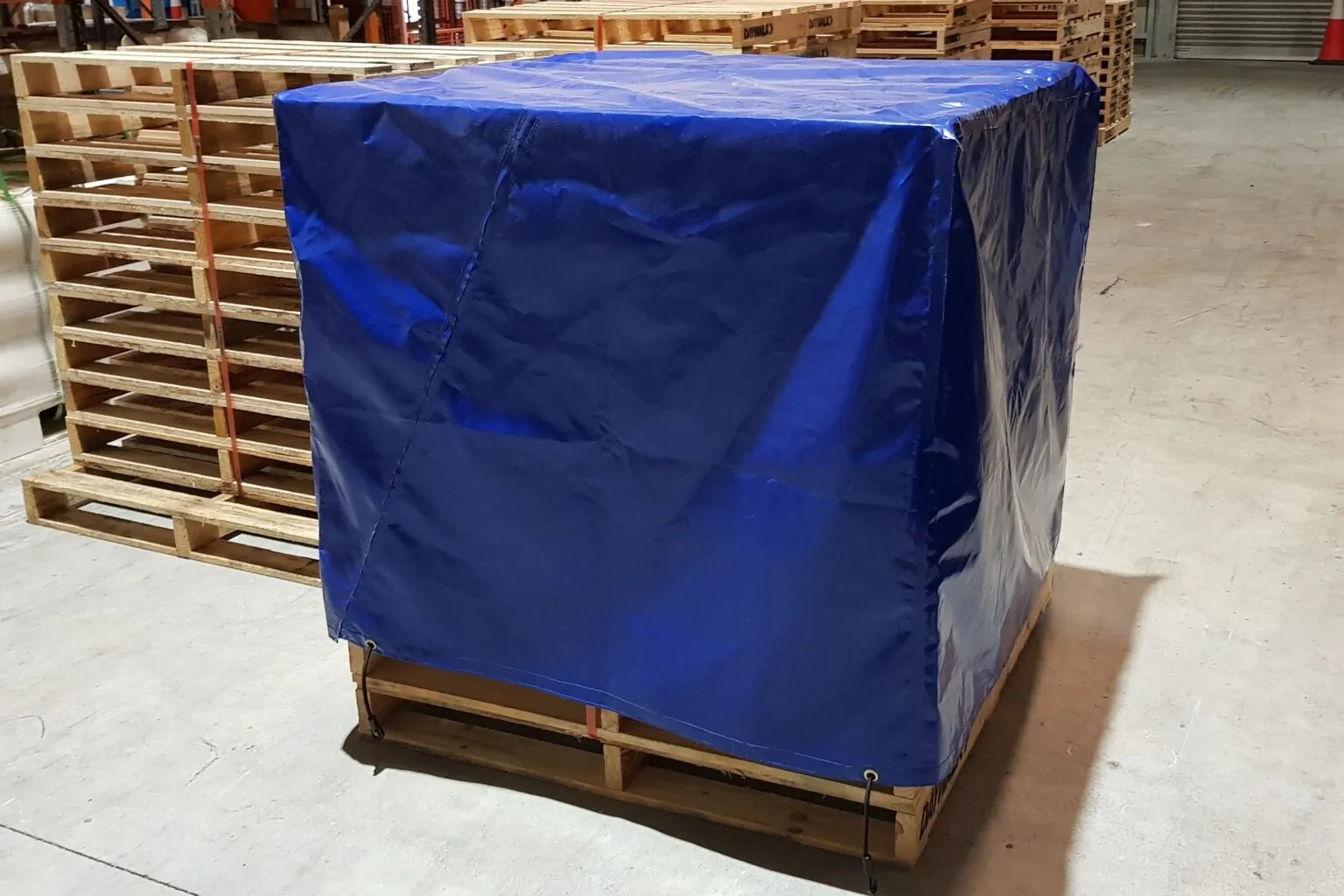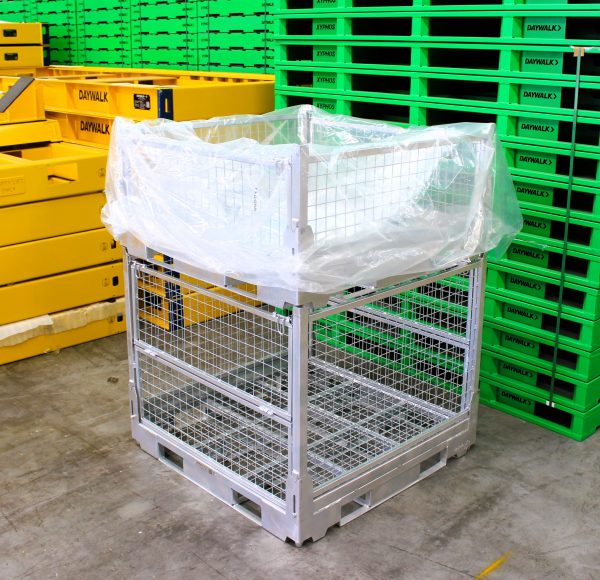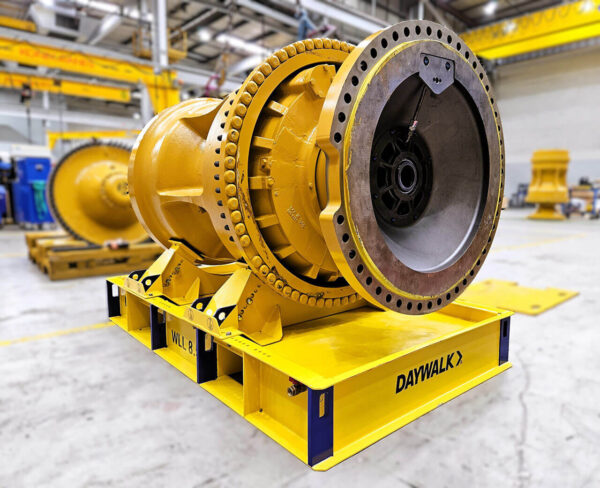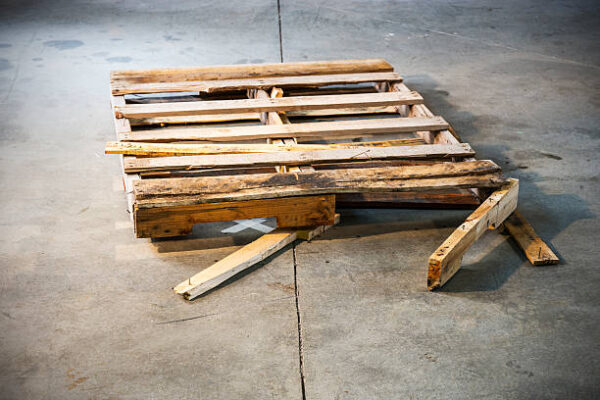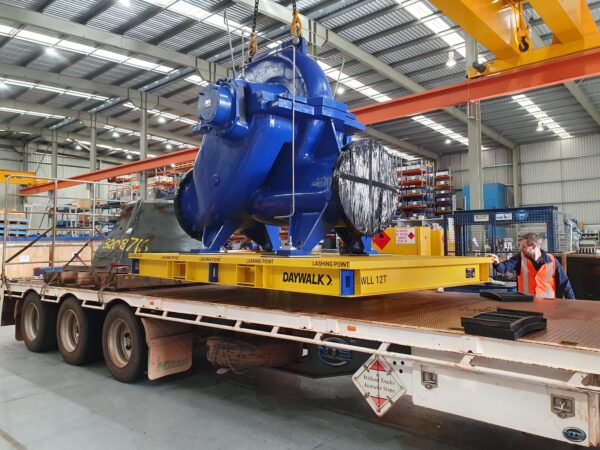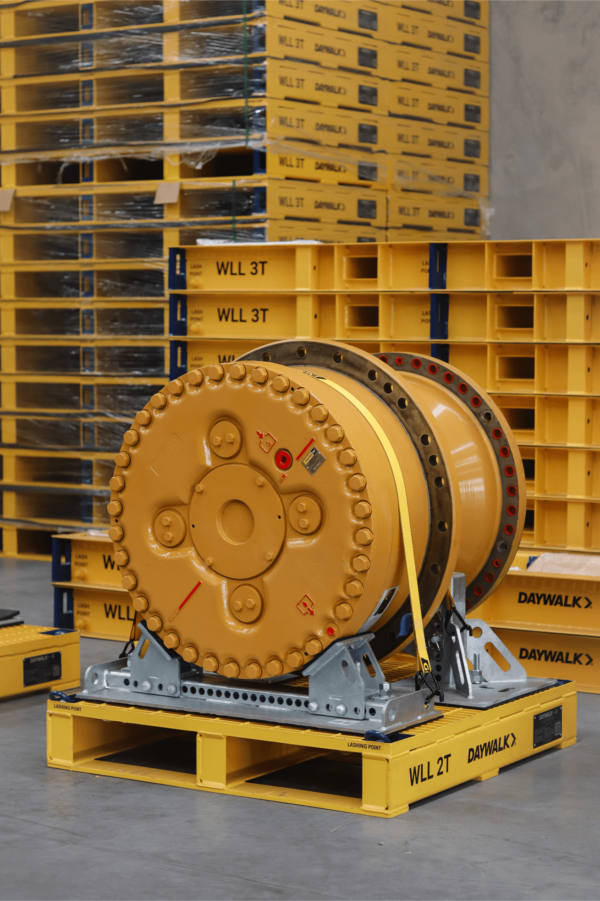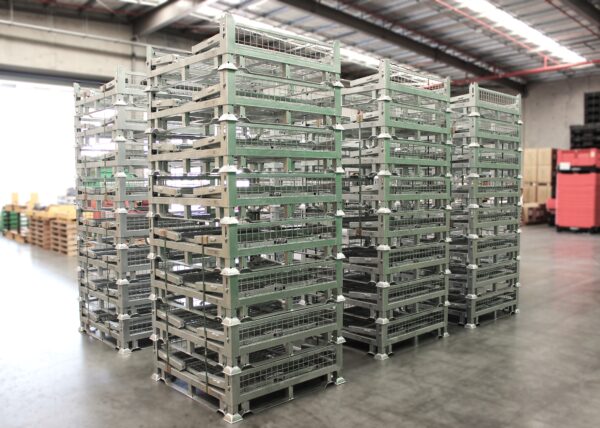Rust can be prevented by storing equipment in dry conditions, applying protective coatings, and carrying out routine inspections. These practices prevent corrosion early and extend the lifespan of industrial gear.
In this guide, we cover what causes rust, whether stainless steel is anti-rust and the best ways to prevent rust on-site. You will also find practical maintenance tips and products that help you stay in control and keep your projects moving.
What Causes Rust on Steel & Metal?
Rust happens when steel is exposed to moisture and oxygen. On-site, that usually means rain, humidity or salty coastal air eating into the surface. Once oxidation starts, it spreads quickly, weakens the structure and reduces reliability.
Anyone managing warehouses or mine yards knows how fast rust can form on untreated steel. DAYWALK’s hot-dip galvanised steel pallets, however, are built for these harsh conditions.Tested in Pilbara weather and proven to last up to ten years, they hold up even when left outdoors through wet months. It’s why operators choose them when long-term durability matters most.
Is Stainless Steel Anti-Rust?
Stainless steel is not rust-proof, but it is highly corrosion-resistant. Its chromium content reacts with oxygen to form a thin, protective layer that helps prevent rust. This layer gives stainless steel strong durability in hostile environments, which is why it is widely used in mining, transport and warehousing. However, the layer can be damaged by scratches, exposure to salt or harsh chemicals. Regular checks and preventative maintenance are still needed to ensure stainless steel performs as intended.
3 Best Ways to Prevent Rust
There is no single answer to how to prevent rust. Different environments and equipment call for different solutions, and most supervisors find that a mix works best. DAYWALK’s range of rust prevention products is designed to support these strategies, giving you options that fit real-world operations. Below are three of the most reliable methods used across heavy industry.
1. Protective Coatings & Paints
Coatings are one of the best ways to prevent rust. Standard paints provide some cover, but they often fall short in harsh conditions such as coastal yards or long-term laydowns. DAYWALK’s coating to prevent rust is designed for real industrial use. It shields equipment during storage or transport and peels away cleanly when inspections are due, saving time and avoiding unnecessary preparation work.
2. Galvanisation
Hot-dip galvanising is a proven process in which steel is immersed in molten zinc to create a tough, protective coating. It works well for infrastructure or assets that require long-term protection from corrosion. Because it is usually carried out during fabrication, hot-dip galvanising provides a complete barrier that reduces the need for ongoing maintenance on heavy-duty equipment. It remains one of the most reliable methods to prevent rust across heavy industry.
3. Using Rust-Resistant Alloys
Heavy-duty materials are required for environments like offshore facilities, chemical plants and areas with constant moisture. Rust-resistant alloys, also known as corrosion-resistant alloys, are engineered for this purpose. They maintain strength and performance where other metals would quickly break down.
How to Protect Steel from Rusting
If you’re wondering how to protect stainless steel from rusting, the most effective approach is regular cleaning, avoiding harsh chemicals, and using preventative coatings. Routine cleaning removes dirt, salt, and dust that trap moisture against surfaces. Harsh cleaners, on the other hand, can strip away protective films and leave steel exposed. Applying coatings or inhibitors on a schedule adds an extra layer of defence.
A good habit is to rinse equipment after it has been exposed to coastal air, check welds during inspections and keep coatings up to date. If done regularly, these small steps save bigger problems later.
Practical Maintenance Methods to Prevent Rust on Metal
When it comes to how to prevent metal from rusting in everyday use, storage and transport are key. Inspections pick up small patches before they spread. Keeping gear in a dry, well-ventilated area helps stop moisture from building up. And when equipment is on the move, it needs to be tied down and protected so it arrives in the same condition it left.
For long-term protection, use equipment storage solutions designed to keep damp air out, and add a protective wrap when needed. These measures extend equipment life and avoid costly downtime. For tailored advice on how you can prevent rust, the DAYWALK team is here to help.
